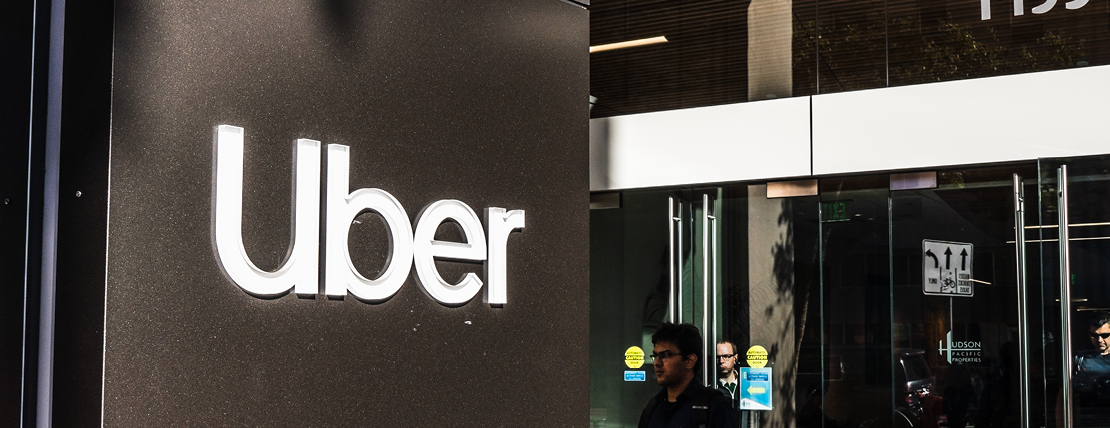Uber has agreed to pay New
Jersey $100 million in back taxes after the state said the ride-hailing company
had misclassified its drivers as independent contractors, according to a report by the New York Times.
An
audit by the state’s Department of Labor and Workforce Development had found
that Uber and a subsidiary, Raiser, owed four years of back taxes because they
had classified drivers in the state as contractors rather than employees. On
Monday, the department announced that Uber had paid the taxes with interest.
The
New Jersey Department of Labor and Workforce Development initially demanded
payment of the back taxes from Uber in 2019, the first time a local government
had sought back payroll taxes from the company. An
audit had uncovered that $530 million in back taxes had not been paid for
unemployment and disability insurance from 2014 to 2018, according to news reports.
The state also demanded $119 million in interest.
After
Uber contested the department’s findings, the case was transferred to New
Jersey’s Office of Administrative Law. Eventually, the company agreed to pay a
revised figure and to drop its appeal.
The
payment covers as many as 91,000 drivers who have worked in New Jersey in one
of the years covered by the settlement. It will help provide benefits such as
unemployment, temporary disability and family leave insurance.
“Our
efforts to combat worker misclassification in New Jersey are continuing to move
forward,” Robert Asaro-Angelo, the department’s commissioner, told the Times. “This
shows that these workers in New Jersey are presumed to be employees. No matter
what a company’s business model or what their technology is, workers have
rights.”
Survey: Canadian Employers Planning Average Salary Increase Budgets of 3.8%
According
to a survey by Normandin Beaudry, Canadian employers are still planning average
salary increase budgets of 3.8%, excluding salary freezes, in 2023 — a rate
higher than historical trends. The
survey polled more than 750 employers and nearly 1.8 million employees.
As
reported by Benefits Canada, the
survey found more than one in 10 organizations are planning average salary
increase budgets above 5% and, in some cases, as high as 20%. Employers are
continuously adapting to market pressures, with average salary increases
granted in 2022 reaching 3.8%, exceeding the initial projections of 3.4% and
2.8% published in February 2022 and July 2021, respectively.
Nearly
half of employer respondents allocated an additional budget of 1.9%
on average in 2022, higher than the initial forecast of 1.2%.
Projections for next year revealed a third of organizations plan to grant an
additional budget of 1.4% on average.
Just
1%
of respondents implemented a salary freeze in 2022 or noted they intend to in
2023.
Amazon’s Workplace Safety Chief to Leave Next Month
CNBC has reported that Amazon’s
top executive overseeing workplace
health and safety is leaving the company next month.
Heather
MacDougall, who joined Amazon in 2019 from the Occupational Safety and Health
Review Commission, is departing the company on Oct. 7, according to a memo that
John Felton, Amazon’s head of operations, wrote to employees on Monday.
“After
building with us for over three years as an important
member of our leadership team, Heather has decided to pursue other
opportunities outside Amazon,” Felton wrote in the memo, which was viewed by
CNBC. “I want to thank her for her many contributions, and I wish her well on
the next step in her journey.”
MacDougall
oversaw the health and safety of Amazon’s global workforce of 1.5 million-plus
employees at a crucial period. In early 2020, as COVID-19
was spreading rapidly, causing businesses and office buildings to temporarily
shutter, Amazon’s warehouse and delivery employees continued to report to work
as consumer demand soared for rapid delivery.
Workplace safety
concerns are one major impetus behind the recent organizing wave at Amazon
warehouses, according to CNBC, and Amazon
has disputed reports of unsafe working conditions. During MacDougall’s tenure,
the company set ambitious goals to reduce injuries, including a plan to cut
recordable incident rates, an OSHA measurement covering injury and illness, by
half by 2025.
Becky Gansert,
who currently serves as vice president of global specialty
fulfillment, will replace MacDougall
after her departure.
NBA Suspends and Fines Phoenix Suns Owner $10 Million for Workplace Misconduct
On
Tuesday, the NBA suspended Robert Sarver, the owner of the Phoenix Suns and
Mercury, for one year and hit him with a record $10 million fine after an
investigation uncovered racist and sexist workplace conduct, according to an NBC News report.
For
the next year, Sarver will be barred from all NBA and WNBA buildings, “including
any office, arena, or practice facility,” the league said in a statement.
He
also won’t be allowed to participate in any NBA or WNBA
event, represent the teams in any capacity, have
involvement in any team business
or basketball operations or play any role in any league governance, the NBA
said.
The
$10 million fine is the maximum allowed under league rules, the NBA said, and
it is the biggest financial penalty ever handed down to one person in pro
basketball history.
The
league probe was sparked by a Nov. 4, 2021
ESPN story chronicling
long-standing allegations of racism and misogyny within the Phoenix basketball
operation.
Editor’s Note: Additional Content
For more information and resources related to this article see the pages below, which offer quick access to all WorldatWork content on these topics:







